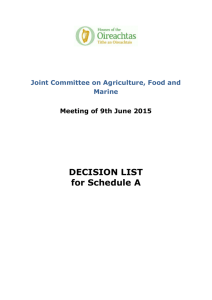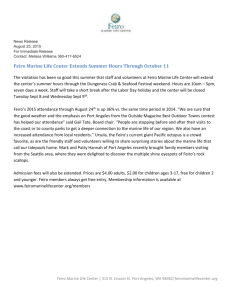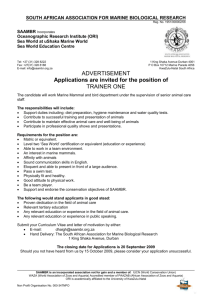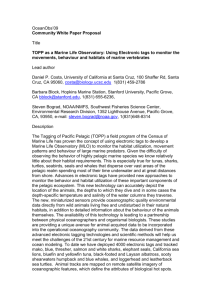ECL 0327 Marine Life DESCRIPTION AND OBJECTIVE
advertisement
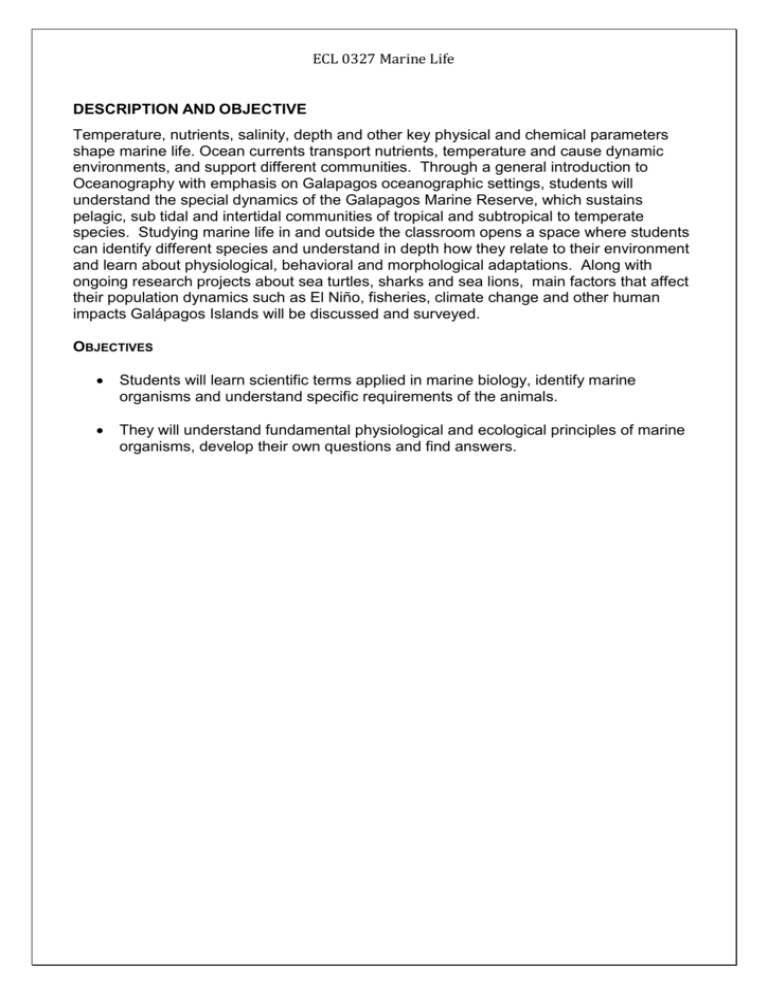
ECL 0327 Marine Life DESCRIPTION AND OBJECTIVE Temperature, nutrients, salinity, depth and other key physical and chemical parameters shape marine life. Ocean currents transport nutrients, temperature and cause dynamic environments, and support different communities. Through a general introduction to Oceanography with emphasis on Galapagos oceanographic settings, students will understand the special dynamics of the Galapagos Marine Reserve, which sustains pelagic, sub tidal and intertidal communities of tropical and subtropical to temperate species. Studying marine life in and outside the classroom opens a space where students can identify different species and understand in depth how they relate to their environment and learn about physiological, behavioral and morphological adaptations. Along with ongoing research projects about sea turtles, sharks and sea lions, main factors that affect their population dynamics such as El Niño, fisheries, climate change and other human impacts Galápagos Islands will be discussed and surveyed. OBJECTIVES Students will learn scientific terms applied in marine biology, identify marine organisms and understand specific requirements of the animals. They will understand fundamental physiological and ecological principles of marine organisms, develop their own questions and find answers.







